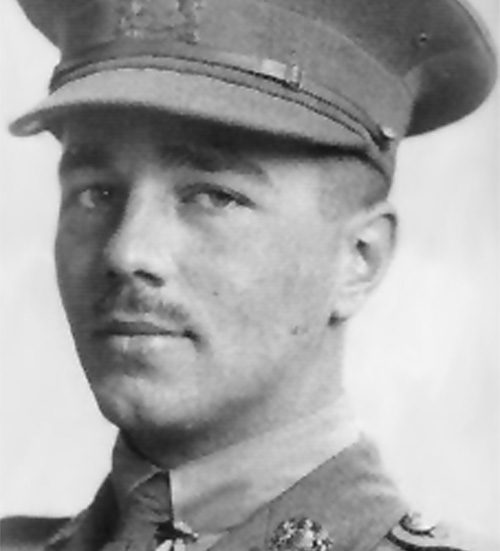World War 1 Literature
GCSE Topic Pack

The Social and Political Climate in Britain before the Great War
|
This resource is free to everyone. For access to a wealth of other online resources from podcasts to articles and publications, plus support and advice though our “How To”, examination and transition to university guides and careers resources, join the Historical Association today |
The start of the twentieth century was an unstable period in British history. Dynamic shifts in political party powers and public calls for social reform left Britain on the brink of substantial change before the outbreak of World War I. The development of new war technology, the introduction of conscription to British society, and the sheer scale of a global war were foreign to many and drastically changed the way that people viewed the world. Because the Great War impacted not only the battlefront, but the home as well, it served as a catalyst for social, intellectual, and political change. This shift was not an easy one, nor is every outcome of it positive, but the movement of thought following the war was powerful and consuming, as is reflected in the works of writers from all facets of society.
Literature during World War I
Literature serves as a fairly accurate gauge concerning the ideas and tendencies of a specific society. In the years immediately preceding World War I, British literature was primarily geared toward entertainment. After the emergence of "penny dreadfuls" and pulp fiction at the end of the nineteenth century, shelves were full of fiction that was entertaining because of its shallow, visceral, thrilling, or comedic tendencies. The First World War jolted society into the reality of war, significantly altering the face of literature because it changed the way people thought about life. The realities of an all-encompassing war revealed the frivolous nature of sheer entertainment and opened questions about life and death, purpose and direction, justice, patriotism, love, and sacrifice. The tone of literature shifted from light-hearted, carefree story-telling to the bitter remembrances and cynical outlooks of a generation who now knew pain and suffering on a massive scale.
Poetry dominated literature at this time, with thousands of poems produced regarding the experience at war, whether in the trench, in the factory, or at home. In addition to poetry, memoirs and diaries became popular methods of communicating the realities of war, giving firsthand accounts of the experience of being at war. These pieces of work are now invaluable resources as historians delve into the history of the war and the experiences of those who lived it. After the War, a general sense of purposelessness and defeat led to a movement both in modernism and in anti-authoritarianism and nihilism in literature and in art. A sense of separation between the artist and writer and the general public was created during this time. No longer could the public fully understand the creator, because it had not experienced what the creator had. An elitism in the arts developed alongside the cynicism that came with experience.
On the Battlefield
The experience of combat soldiers in the trenches of World War I was a constant state of motion between boredom or occasional amusement in the ranks and intensive fighting. In reality, soldiers spent a very small percentage of their time in combat, but one day in battle was enough to nip the high spirits of any man in the trenches. In circumstances like these, it was difficult to keep morale high. While society said it was noble to fight and die for country, the experiences of soldiers at war told them otherwise. Soldiers had plenty of time to think over the reasons they were there in the trenches. Many could not find legitimate reason, as evidenced in their writings.
Many writers conveyed the experiences they had in gruesome detail. Life in the trenches and on the battlefield was violent and gory. Soldiers went through the trauma of seeing their friends and comrades die in emotionless battle at the hands of their seemingly heartless enemy. Second Lieutenant in the Manchester Regiment of the British army, Wilfred Owen was a great poet who described his experiences through his poetry. In his poem, "Dulce Et Decorum Est," Owen tells about a gas attack on his regiment while they were mobilizing:
"Men marched asleep," he said,
"Many had lost their boots
But limped on, blood-shod.
All went lame; all blind;
Drunk with fatigue...
Gas! Quick, boys! - An ectasy of fumbling,
Fitting the clumsy helmets just in time;
But someone was still yelling out and stumbling...
As under a green sea, I saw him drowning....
If in some smother dreams you too could pace
Behind the wagon that we flung him in, And watch the white eyes writhing in his face...
My friend, you would not tell with such high zest
To children ardent for some desperate glory, the old Lie; dulce et Decorum est."
Many of the poems written by soldiers during World War I reflect the condidtions that they found themselves in. The poor conditions living in trenches full of mud, rats, lice and constant shell fire and the constant sight of death, took its toll and fostered the bitterness that many felt at fighting for a cause that they did not fully understand.
Further Reading
Please note: the HA is not responsible for content on external websites
- Interactive British History Timeline (BBC: History)
- British Society before the Great War (BBC: History)
- British War Poetry 1914-1918 (Fordham University)
- Wilfred Owen and His Editors (firstworldwar.com)
- British and German Soldiers' Experiences during World War I (firstworldwar.com)
- Helpful Literary Resources (Literary Connections)

